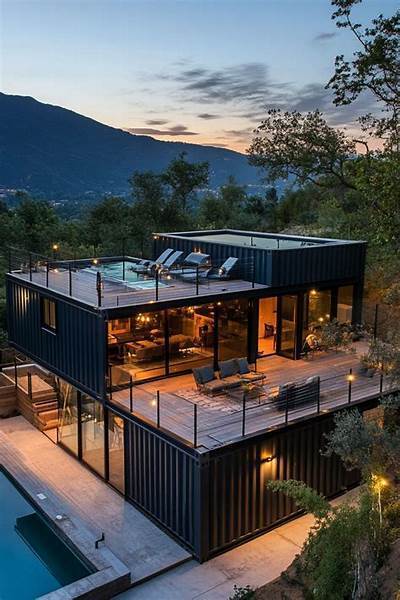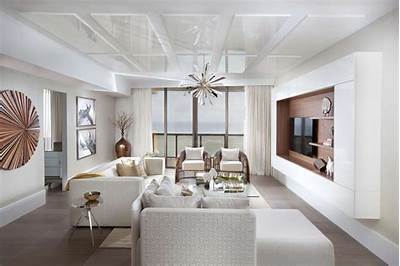Simple Home Interior Design: A Guide to Minimalist Living
In today's fast-paced world, the sanctuary of our homes has become increasingly important. Many crave a space that fosters relaxation, promotes well-being, and reflects their personal style without overwhelming complexity. This is where simple home interior design comes in. This guide explores the principles of minimalist design, offering practical tips and inspiration to create a calm and functional living space that truly feels like home.
Understanding the Principles of Simple Design
Simple design isn't about emptiness; it's about intentionality. It's about carefully curating your belongings and focusing on quality over quantity. Here are some key principles:
1. Decluttering and Minimalism: The Foundation
The cornerstone of simple design is decluttering. This involves a thorough assessment of your belongings, discarding anything you no longer need, use, or love. This process can be daunting, but breaking it down into smaller, manageable tasks makes it less overwhelming. Start with one room or even one drawer at a time. Ask yourself: Does this item serve a purpose? Does it bring me joy? If the answer is no to both, it's time to let it go.
2. The Power of a Neutral Color Palette
Neutral colors – whites, creams, grays, beiges – form the bedrock of a simple design scheme. These colors create a sense of calm and spaciousness, acting as a blank canvas for your personal touches. They also allow natural light to bounce around the room, making it feel brighter and more open. You can introduce pops of color through accessories, artwork, or textiles, but keep it restrained to avoid visual clutter.
3. Functionality Over Ornamentation
Every item in a simply designed home should serve a purpose. Avoid decorative items that don't add value or joy to your space. Focus on furniture that is both functional and aesthetically pleasing. Multi-functional pieces, such as ottomans with storage or beds with built-in drawers, maximize space and minimize clutter.
4. Natural Light and Airflow
Maximize natural light by keeping windows unobstructed. Sheer curtains or blinds allow light to filter in while maintaining privacy. Good airflow is crucial for a comfortable and healthy home environment. Open windows regularly to let fresh air circulate, and consider using plants to purify the air.
Applying Simple Design Principles to Different Rooms
The principles of simple design can be applied to every room in your home, creating a cohesive and calming atmosphere throughout.
1. The Living Room: A Sanctuary of Relaxation
In the living room, focus on creating a comfortable and inviting space for relaxation and socializing. Choose a neutral-colored sofa and a few comfortable armchairs. Add a rug to define the seating area and a coffee table for practical use. Keep accessories to a minimum, focusing on a few meaningful pieces like a favorite plant or a cherished piece of art.
2. The Bedroom: A Haven for Rest
The bedroom should be a tranquil retreat, designed to promote restful sleep. Choose a calming color palette, and keep the furniture simple and functional. A comfortable bed, bedside tables, and a dresser are essential. Avoid cluttering the space with unnecessary items, and ensure the room is well-ventilated and dark enough for optimal sleep.
3. The Kitchen: Efficiency and Cleanliness
A simple kitchen design emphasizes efficiency and cleanliness. Choose minimalist cabinetry, and keep countertops clear of unnecessary items. Invest in quality cookware and utensils, and store them neatly. A well-organized kitchen is both aesthetically pleasing and functional.
4. The Bathroom: A Spa-Like Retreat
Create a spa-like atmosphere in your bathroom by focusing on cleanliness and simplicity. Choose a neutral color palette, and keep the countertops and surfaces clear. Add a few plants to bring life into the space, and incorporate natural materials like wood or stone for a calming effect.
Incorporating Personal Touches
While simplicity is key, it doesn't mean sacrificing personality. Incorporate personal touches that reflect your individual style and preferences. This could be through:
- Artwork: Choose a few pieces of art that you love and that complement the overall design scheme.
- Textiles: Introduce texture and warmth through throws, cushions, and rugs. Choose natural materials like cotton, linen, or wool.
- Plants: Add life and vibrancy to your space with indoor plants. Choose low-maintenance varieties that thrive in your home environment.
- Books: A curated collection of books can add personality and intellectual stimulation to your living space.
- Personal Collections: Display a small, carefully curated collection of items that are meaningful to you, such as shells, stamps, or vintage postcards.
Maintaining a Simple Home
Maintaining a simple home requires ongoing effort. Here are some tips:
- Regular decluttering: Set aside time each week or month to declutter and organize your belongings.
- One in, one out rule: For every new item you bring into your home, get rid of an old one.
- Mindful purchasing: Before making a purchase, ask yourself if you really need it and if it aligns with your simple design aesthetic.
- Regular cleaning: A clean and organized home contributes to a sense of calm and well-being.
Conclusion
Simple home interior design is more than just a trend; it's a lifestyle choice that prioritizes functionality, minimalism, and intentionality. By embracing these principles, you can create a home that is not only aesthetically pleasing but also promotes relaxation, well-being, and a sense of calm amidst the chaos of everyday life. Remember, the journey towards a simple home is ongoing, so be patient with yourself and enjoy the process of creating a space that truly reflects you.


この記事へのコメント